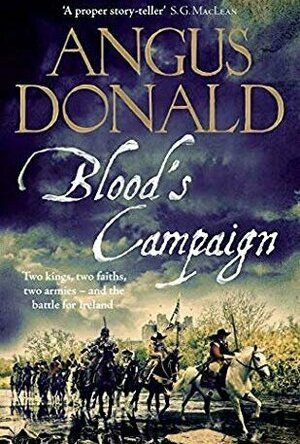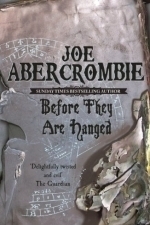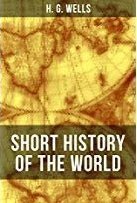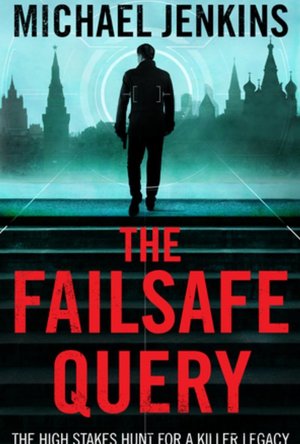
The Failsafe Query
Book
The Failsafe Query is a gripping thriller set in the contemporary world of modern British espionage....
Action Espionage
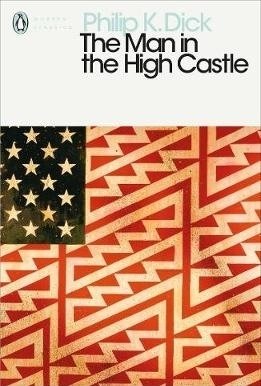
The Man in the High Castle
Book
A dazzling speculative novel of 'counterfactual history' from one of America's most highly-regarded...
David McK (3666 KP) rated Blood's Campaign in Books
Mar 5, 2020
Which is where I live (well, in Northern Ireland).
Living, as I do, not that far from Carrickfergus in Belfast I was aware of the siege of Carrickfergus, and (of course) of the Battle of the Boyne - it's impossible not to be, living here! With William's victory celebrated by a section of the community every 12th of July - although the subjects were never really taught at all in my school days; seemingly more concerned with the Norman conquest or with the English Civil War or World War 2 than with 'local' history. In retrospect, I think that might be because local history is (still) a touchy subject: what is one man's hero, for example, is another man's villain in this country!
Anyway, I've gone off topic: Blood's Campaign.
An interesting read, with Holcroft Blood still an unusual protagonist (hinted as being on the autistic spectrum?), with - even for someone born and raised in Northern Ireland - some fascinating history thrown in, although (I have to say), that this one didn't quite grip me as much as Angus Donald's 'Outlaw' (Robin Hood) series.

Stone Cold: The Extraordinary Story of Len Opie, Australia's Deadliest Soldier
Book
'If I'd have been a Vietcong you'd be dead.' - Len Opie 'Len was a soldier above soldiers.' - Keith...
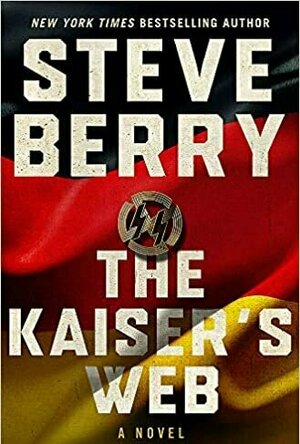
The Kaiser's Web
Book
In bestselling author Steve Berry's stunning novel, former Justice Department agent Cotton Malone...
Haley Mathiot (9 KP) rated Before They are Hanged: The First Law: Book Two in Books
Apr 27, 2018
All three books have a part 1 and a part 2. Part 1 of the first book was spent introducing a huge variety of characters that didn’t seem to have anything to do with each other; in fact they didn’t even feel like they were living in the same world. I did put the story down and move away from it a few times, because there wasn’t much plot or connection between them. Even though it was interesting, funny, and well written, that first part seemed very disconnected.
I told myself I’d listen to one more track. So I did, and that one track was the one where everything started falling together. Not only were they in the same world, they would be going on the same adventure and working together to save the world from an evil king, a crazy wizard, and magical zombies.
I love a good war story.
Each story left off with a stunning finish that begged for more. Even the last one; though it was open enough that anything could happen, you’re pretty sure you know. All the loose ends are tied up: bad guys die, people get their revenge, the king gets married, the deserving are promoted, and the drunks get… less drunk than normal.
If you’re into action, adventure, fantasy, or bloody thrillers, this series will keep you busy for a good long time!
Content and Recommendation: Ages 18+. Some sex (I’ll tell you know it’s awkward not great, even worse when you’re listening to it, not reading it). Plenty of language. Lots of violence; war scenes, murder, and cutting off body parts. One of the main characters is a torturer, okay? This one isn’t for the faint of heart. And don’t listen to it while you’re eating.
BookblogbyCari (345 KP) rated A Short History of the World in Books
Aug 5, 2018
As I hoped, the book often reads like a novel, with 67 distinct sections, each like a mini story. In order to fit the history of the whole world into one book, by nature the story telling ranges from nice and rapid, to a little too rapid. I found it rather like a catalogue of numerous interesting little nuggets of information. Despite covering events from all over the world, the topics often flow seamlessly from one topic to the next. Due to so many overlapping topics, this history of the world isn't told in a linear purely chronological pattern, but has to go backwards a little, now and again.
At various times throughout, the stories are gripping and Wells successfully brings history to life. I particularly liked the various sections on religious leaders. Appropriately, Wells tackles religion as would any unbiased historian-become storyteller. I also enjoyed the beginning, where Wells paints a crystal clear picture of our solar system and the vast empty space that our dramas are within. His description of our galaxy sounds nothing short of beautiful.
The book was meant to be predominantly factual, but Wells did include a substantial amount of speculation and opinion. This does not distract from the storyline, but adds value in generating the concepts of the time periods.
It covers progress and prosperity as much as carnage and decimation, and provides good explanations of everything it covers. (Although it would benefit from more illustrations). At times it feels detail heavy but also gives the reader a feel for each age - the book is not limited to which country went to war with which country and when, but also examines changes in ways of thinking through the ages. Including the Ancient Greek philosophers, Arabian progress in maths and science, the advent of experimental science, and the development of political and social ideas in Wells’ time.
I was reassured to learn that despite not studying the history of the world in its entirety in school, I was already familiar with much of the book’s content. Having said that, there were also topics where I really felt I was learning something. I read Wells’ opinion on why the Roman Empire fell, and how the industrial revolution was not merely a revolution in machinery, but rather a revolution in how people conducted their everyday lives. There were also some important figures from history described that were never mentioned in my school days, particularly Charlemagne and Roger Bacon.
Towards the end of the book, Wells correctly predicts another war like that of the Great War. However his final message was one of faith and hope in humanity’s progress.
With such a huge scope, Wells must have struggled with deciding what topics to include and what to exclude. I thought he ought to have included a touch more detail on Ancient Egypt, and on the causes of the Great War (World War 1). As a British person myself I would have liked to have seen more on British history.
Likewise, if the book were written now rather than 1922 I began to speculate on what he would and wouldn’t have included. I imagine there would certainly be a section on World War 2, rockets into space, the internet, and 9/11. He would have provided an excellently conducted section on how humans are destroying the planet.
One of the beauties of this book has to be its availability. If you type “short history of the world” into Google, the free PDF of this book takes up much of the first 2 pages of results. If you’re sketchy on world history, this book will fill in the main blanks, and is worth a read if this is your aim, especially if you wish to do so quickly. The fact that it’s split up into so many succinct sections also means that you can pick up and put down the book as often as opportunity allows. It also works well as a reference book, as it does not need to be read from cover to cover in order to look up one particular event or time period.
In summary, this book would be a welcome addition to bookshelf (or ebook library) of the general non-fiction fan or historian.
Find more of my book review on www.bookblogbycari.com
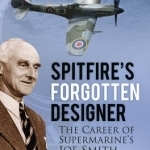
Spitfire's Forgotten Designer: The Career of Supermarine's Joe Smith
Book
The Supermarine Spitfire was a classic design, well known for its efforts in defending British...
A Midshipman's Tale: Operation Pedestal, Malta Convoy - August 1942
Michael MccGwire, Eric Grove and Lucinda Neall
Book
At the beginning of 1942, more than two years after the start of the Second World War, much of...
